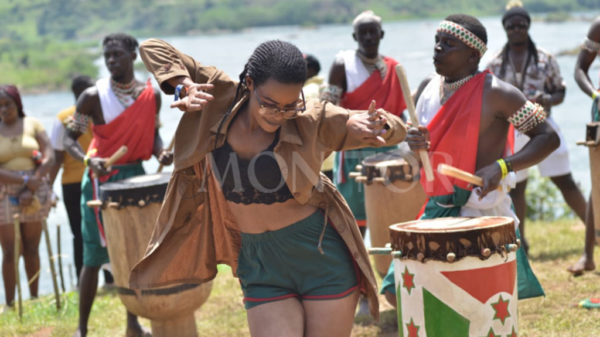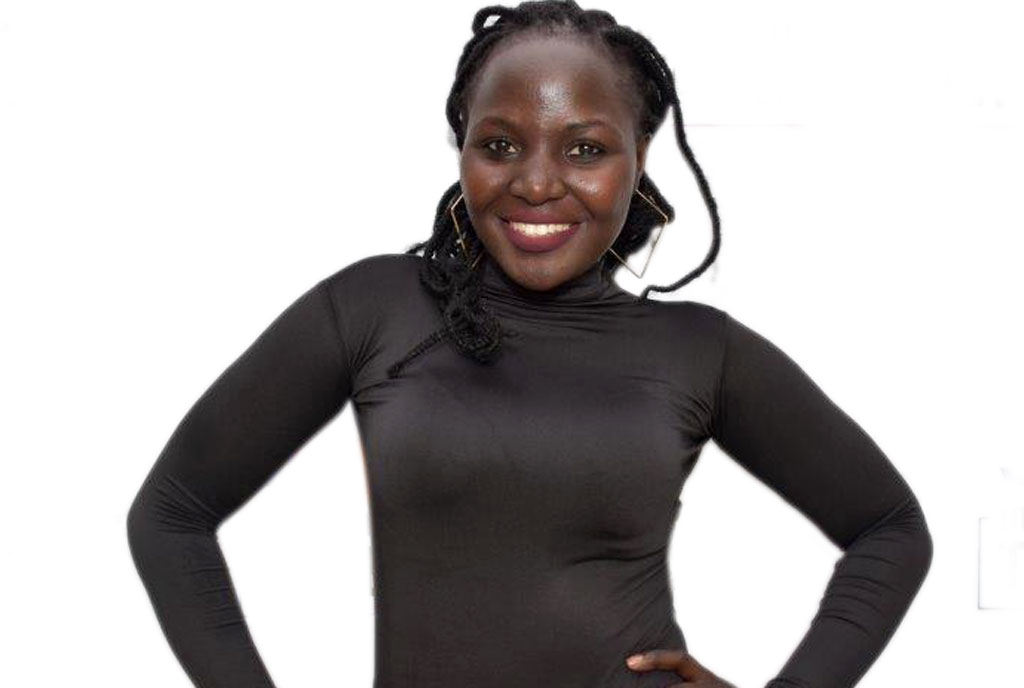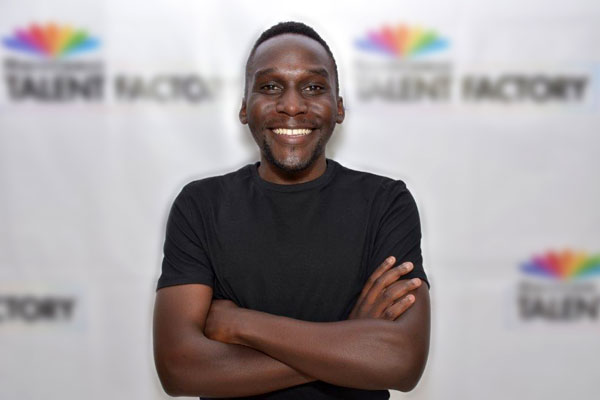Ugandan film has potential and the people in film know that. How to exploit it all, however, seems like the problem. Is an opportunity availed to four Ugandans to train in film be one of the ways the industry will soar?
At the beginning of September, African filmmakers came together to celebrate the art of storytelling, courtesy of the Africa Magic Viewers’ Choice Awards in Lagos.
Yet, even when it was a celebration that brought local films such as The Torture, Bella, Rain and The Forbidden alongside African big films such as Alter Ego, The Journey to Sunrise and 18 Hours, among others, there was no way one could hide from the fact that much as the quality of film has greatly improved, African films still play second fiddle to heavy budgeted for Hollywood movies.
For instance, while most of the African filmmakers at the awards show knew a lot about the film establishments in their home countries, they knew so little about other countries, with the exception of Nigeria.
And this was almost the backdrop of MultiChoice’s latest programme, the Talent Factory.
It is a one-year programme aimed at empowering future filmmakers with skills to help tell the African story better as well as compete favourably with other markets.
And of course, the success of such a programme interprets into more content, especially at a time when Hollywood is coming to Africa for inspiration and search for fresh narratives.
“Content from other parts is good and amazing but our stories are inspirational,” says Njoki Muhoho, the Talent Factory Academy director for East Africa.
She says decisions to start the Talent Factory were informed by the success of Nollywood, which showed them that local content as a business was a force to reckon with.
The Talent Factory academies will be spread in three African regions; west, east and south; all together, the academies will be training 60 young filmmakers in aspects of sound, light, cinematography, writing and directing, among other fields.
The campuses will host filmmakers from 13 African countries, including Uganda, Kenya, Tanzania, Ghana, Malawi, Nigeria and Zambia.
Muhoho says when the talent search advert was put out it May, there were fears that there would be gender inequality, so they were pleased that there was a good turn up of female contestants.
Over the years, film industries in East Africa have struggled with getting an audience for their products. Because of this, many filmmakers professionally trained, find themselves using their skills in the advertising world and music videos.
“It really hurts seeing talented filmmakers being lost to advertisement and part of what we are teaching the trainees is the business part of film, not just the skill,” she said.
For the pilot project, the 60 participants will not only be training but will be working on actual projects, with the hope of fostering a future of collaborations.
Steady Foundation
Moses Serugo, a film curator, says there is need for a new generation of filmmakers with a different view of things.
Film is a collaborative kind of work and bringing almost the whole region together will foster this where you have a director from Uganda, editor from Kenya and probably a costume designer from Nigeria.
“Our storytelling is lacking and if we have this platform that allows us to learn from others, it will enable our film tell a story that is African but not limited to Uganda,” he said.
Serugo notes that the business of seeing a writer being the director, editor and at times actor is getting tired.
“Training is essential. It is a factory and it won’t be churning out half baked filmmakers,” he said.
The Ugandan students have something back home to utilise their skills following the launch of Pearl Magic, a channel intended to highlight local content such as reality shows, films and dramas from Uganda.
Though even as it went live this month, it was clear they still fall short as far as local content supply is concerned.
And for many, this is where such opportunities come in handy. With such trainings, the graduates can easily work with already existing producers to give the audience products that can compete.
Mathew Nabwiso, a filmmaker, says when they started out in film, many of them were self taught and they paid heavily for that but he believes the students will have direction.
Hilda Monica Awori
It has always been her aspiration to be in the creative industry, which is why she studied for a Bachelors of Arts in Drama and Film and works as a filmmaker and artiste. Her qualification helped her understand that we can become better storytellers by taking from the example of Jerzy Marian Grotowski, the Polish theatre director and theorist, whose approaches to acting, training and theatrical production showed that you do not need money to tell a good story.
“As long as creatives learn the art and formula of storytelling, the sky is the limit. We can become incredible storytellers by making use of all kinds of platforms and materials, starting with our phones and making use of social media, which has given us opportunity for an audience,” says 24-year-old Awori.
Lack of financial support and the belief that the entertainment industry does not create a credible career has killed dreams and has denied Africa many creatives, in her opinion.
But she believes that Africans have the grit and staying power to overcome challenges. Awori hopes that the academy will help fellow Africans fall in love with African content. She draws her inspiration from Nigerian author Chimamanda Adichie Ngozi, Ugandan actor Philip Luswata and films such as Black Panther.
“Philip Luswata strives to create opportunities for young artistes in Uganda. The lack of opportunity limits the entertainment industry. I could not sing but because of him, today I can hit the high notes. I look up to him and someday hope to use my position to create as many opportunities for young artistes,” she says.
Cissy Nalumansi
“The era of substandard filmmaking is gradually fading and coming to an end. A new reign of filmmakers – telling stories in creative and innovative ways and making the most of the new technologies and collaborations available – is set to take over,” says Nalumansi.
“Soon more film distribution companies and multiple channels of accessing content will emerge, some of which are already here.”
The 24-year-old website developer has a flair for entrepreneurship and hopes that the academy will set her in the direction of becoming a director, scriptwriter and actress. She is bringing her eagerness to learn and commitment to hard work to the programme.
“It is an opportunity to broaden my social connections, expand my network in the film industry and give me an opportunity to make a difference in Uganda by passing on the information I have learned to other people who are hungry for the same knowledge but not in position to acquire it,” says Nalumansi.
One of the industry’s greatest challenges, she believes, is unprofessionalism and inadequate resources to sustain projects.
“When these challenges are met with inadequate resources, Improvising becomes the order of the day and at the end of the project, the result is poor work.”
But she says good directing can help make a good film. When a film script is placed in the hands of a good director, they will ensure that all the elements of the production from cast, crew to support staff, will help turn their vision into reality.
Casey Lugada
Working as an editor has given Lugada a taste of Africa’s burgeoning film and TV industry. It has inspired the 18-year-old to pursue a career in film directing, although he is looking forward to learning new skills that will strengthen his future opportunities and experience. “There are a lot of untold stories within Africa. It is a content-rich continent,” he explained. Lugada wants to add a creative new outlook to the conventional way that stories are told because he believes it is the director’s responsibility to take the audience on a journey.
“What determines a good film happens long before the film is shot. There are countless ways in which meanings, interpretations, motives and emotions can be conveyed to an audience,” he said.
“What makes a good film is not just the content, but a director who understands the different ways and reasons for impacting the audience in the way they do.”
He believes that storytelling is expressive, subjective and needs to be approached from multiple angles so as to find the stories that are not told.
Lugada believes the biggest challenge in the African film and TV industry is finding platforms and outlets to distribute creative works produced on the continent that are simultaneously easily accessible to audiences. He draws his inspiration from Ian Akankwasa, aka Sasha Vybz, whose work in videos such as Mummy Yo, Wale Wale, and many more speaks for itself..
Aaron Joseph Tamale
“What’s the best thing about Africa?” That’s an easy question for 24-year-old Tamale. “Our stories, rich diversity, culture and heritage. We have so much rich history that if we created and shared more of our stories, the world would start looking at Africans differently. And we would appreciate ourselves more, rather than try to copy norms and traditions whose genesis we do not even know.” And his dream career is to do just that. Tamale wants to become a successful media entrepreneur, film director and producer so that he can write compelling television content “for our minds and hearts – that will change people’s lives”.
He draws inspiration from Clarence Peters for his diversity, creativity and the freshness he brings to his various projects, be music videos, documentaries or TV features.
Tamale believes that storytelling is the essence of making a good film because it either makes of breaks it. “Everything in the film is part of the story from the script and dialogues to the lighting and sound, as well as the costume and set designs. All these communicate something to the audience and that is why it is important to get the story right.”
Tamale, who has earned the nickname Media Mogul, is passionate about digital media and dreams of owning a streaming site for distributing and monetising locally-made content. He hopes that joining the academy will position him as a game changer across East Africa’s film industry.
“It is only a matter of time and Hollywood will be running to Africa for more ideas,” he says.
MATHEW NABWISO, FILMMAKER
“We have made mistakes and I hope the young people going through the talent factory will avert this since they will join the industry from an informed view. There should be an emphasis on technical things such as cinematography and sound, areas that limit us because people that are good are few. There should also be trainings for actors. Uganda and Africa have many trainings tailored for technical people but actors are usually left in the cold.
Nisha Kalema, actor & producer
The industry lacks people who take the technical part of their work seriously. With such trainings, people are being trained to be professional. Good enough, two of Uganda’s representatives are women. We need more women in technical areas.






























































